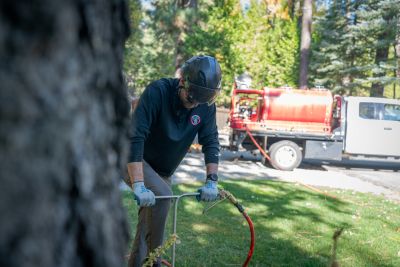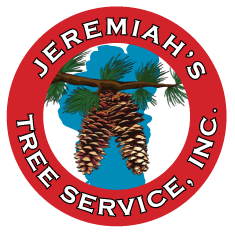Introduction to Soil Health
Soil health is a foundational pillar of forest vitality in the Lake Tahoe Basin. Native forest soils—rich in organic matter, teeming with microbial life, and guided by natural nutrient cycles—support healthy tree growth, resilient ecosystems, and critical services like water filtration, carbon storage, and erosion control. Unlike urban soils, which often suffer from contamination, compaction, and nutrient depletion, Tahoe’s soils have developed in harmony with native plant communities and local climate over centuries.
However, these native soils are not immune to degradation. Construction, logging, wildfire, and even recreational activities can disrupt soil structure and deplete its natural fertility. Recognizing and respecting the unique properties of Tahoe’s forest soils is essential for effective land management and ecological restoration.
Several key factors influence soil health: structure, fertility, and the presence of contaminants. Well-structured soil enables root growth and water infiltration; fertile soil supplies essential nutrients for native vegetation; and clean, uncontaminated soil protects both plant and human health. Though threats to soil quality exist, they can often be mitigated through cost-effective, sustainable soil care strategies—such as mulching, erosion control, and minimizing soil disturbance.
Investing in soil health isn’t just beneficial—it’s essential. A resilient, thriving Tahoe forest depends on our ability to protect and enhance the very ground it stands on.
Replenish Your Trees from the Roots Up
 At Jeremiah’s Tree Service, we know that healthy soil is the foundation of healthy trees. In the Lake Tahoe region, soil issues like compaction, poor drainage, low nutrients, and salt buildup can take a serious toll on your trees and shrubs. That’s why we offer professional soil treatments designed to restore soil health and give your landscape the support it needs to thrive. Additionally, using mulch can significantly improve soil health and support tree growth.
At Jeremiah’s Tree Service, we know that healthy soil is the foundation of healthy trees. In the Lake Tahoe region, soil issues like compaction, poor drainage, low nutrients, and salt buildup can take a serious toll on your trees and shrubs. That’s why we offer professional soil treatments designed to restore soil health and give your landscape the support it needs to thrive. Additionally, using mulch can significantly improve soil health and support tree growth.
Healthy soils not only retain water more effectively—helping your trees endure dry periods—but they also reduce overall plant stress, making your trees less vulnerable to pests such as the Fir Engraver Beetle.
With decades of experience in the Sierra environment, our certified arborists use safe, effective methods to treat soil problems at the root—literally. Whether you’re dealing with stressed, thinning trees or just want to improve long-term health, our soil treatment services are tailored to your property’s unique needs. Before applying treatments, we determine specific soil issues to ensure the most effective solutions.
Signs of Poor Soil Health
Not sure if your trees are suffering from poor soil health? Watch for these common symptoms:
- Compacted or clay-heavy soil
- Chlorotic (yellowing) or browning leaves
- Stunted growth or dieback
- Sparse foliage or premature leaf drop
- Poor drainage or water pooling
- Salt damage from roads or irrigation
- Decline in tree vigor after construction
If you’re noticing any of these signs, our team can diagnose the issue and apply the appropriate treatment. It is crucial to identify the specific contaminants present in the soil to apply the appropriate treatment.
Our Soil Treatment Services
We offer a comprehensive suite of soil solutions to target the specific conditions found in Lake Tahoe and surrounding mountain communities. Understanding the land’s history is crucial before applying soil treatments to ensure effective remediation strategies.
Our services include soil testing, pH balancing, and organic amendments to improve soil health. Different properties of the soil can significantly affect the choice of treatment, making it essential to assess these factors for optimal results.
Deep Root Fertilization
A specialized injection of nutrients directly into the root zone to improve soil health, tree vigor, and overall appearance. Deep root fertilization can add nitrogen to the soil, improving plant health. We offer both essential and premium options, depending on the level of support your landscape needs. Maintaining an optimal soil pH is also crucial for effective nutrient uptake and overall soil health.
Salt Remediation
Road salt and deicing chemicals can leach into the soil, harming roots and altering nutrient uptake. Contaminated soils pose significant challenges, necessitating effective remediation strategies to manage soil health and limit human exposure to toxic compounds. Our salt remediation process flushes salt deeper into the soil, helping restore balance and function. It is crucial to select the right site for salt remediation practices to ensure the effectiveness of the treatment and address varying levels of contamination.
Water Retention Treatments
In drought-prone areas or landscapes without irrigation, our water retention injections help the soil hold moisture longer. These treatments can improve the condition of soil particles by enhancing their ability to retain water and reducing the risk of erosion. This improves hydration for trees and shrubs during dry periods. Additionally, the benefits of these treatments include healthier plant growth, increased resilience to drought, and a more sustainable landscape.
Vertical Mulching
Used for decompacting dense or disturbed soil and enhancing root zone aeration and drainage. Vertical mulching can be complemented with cover crops to improve soil health by building organic matter, adding nutrients, and assisting with weed control. Ideal for trees in high-traffic, compacted, or poorly drained areas. The benefits of vertical mulching include improved root zone aeration and drainage, contributing to healthier and more resilient plants.
Tree Growth Regulators
We apply growth regulators to reduce canopy stress and redirect the tree’s energy into root development. Understanding the land’s history is crucial before applying growth regulators, as past land-use and contaminants can significantly impact soil quality and tree health. Especially useful for trees planted in limited soil or post-construction recovery. Additionally, different properties of the soil, such as pH levels and nutrient content, can affect the effectiveness of growth regulators.
Why Soil Treatments Matter in Lake Tahoe
Lake Tahoe’s natural beauty comes with some unique challenges: rocky terrain, droughts, shallow soils, and harsh winters can all impact soil health. Combine that with increasing development and seasonal stress, and trees in the region often need extra support. Additionally, the presence of contaminated soils in the Lake Tahoe region poses significant challenges, requiring effective mitigation strategies to manage soil health and limit human exposure to toxic compounds.
Our treatments are designed specifically for these local conditions. We don’t take a one-size-fits-all approach — every solution is customized based on your soil composition, tree species, and environmental factors. Selecting the right site for soil treatments is crucial to ensure the effectiveness of our remediation practices.
Healthy Soil = Healthier Trees
Soil is more than just dirt — it’s a living ecosystem that feeds and supports your trees. Maintaining healthy soil can ensure adequate nitrogen levels for tree health. When soil health declines, so does the life above it. By investing in professional soil treatments now, you’re giving your trees a stronger foundation for the future.
Maintaining Soil Quality
Maintaining soil quality is fundamental for success, requiring a holistic approach that includes soil testing, composting, and mulching. Soil testing is the first step in determining the presence of contaminants, such as heavy metals and pesticides, and informing appropriate soil remediation strategies. Regular soil testing helps people make informed decisions about how to manage their soil effectively.
Composting and mulching are powerful tools for building soil health. Adding compost to the soil enriches it with organic matter, improving soil structure and fertility while reducing the bioavailability of soil contaminants. Composting also promotes biological processes that support plant growth, such as the activity of beneficial microorganisms. Mulching, on the other hand, helps retain soil moisture, suppress weeds, and regulate soil temperature, creating a more stable environment for plants.
By adopting these sustainable agricultural practices, farmers can maintain high soil quality, reduce the risk of contamination, and enhance ecosystem services. Regular monitoring and maintenance are essential to ensure the long-term health and productivity of Tahoe soils, ultimately leading to more resilient and sustainable soil systems.
Schedule a Soil Assessment Today
If your trees are showing signs of stress or decline, don’t wait until it’s too late. Jeremiah’s Tree Service offers expert soil evaluations and tailored treatment plans to restore balance and boost tree vitality. Understanding the land’s history is crucial before scheduling a soil assessment to ensure effective remediation strategies. Our licensed and insured arborists serve Lake Tahoe and the surrounding area with professionalism, safety, and care. Different properties of the soil can significantly affect the assessment and treatment plan, making it essential to consider all factors.
Let’s bring life back to your landscape — contact us today to schedule your soil health or tree service consultation.
